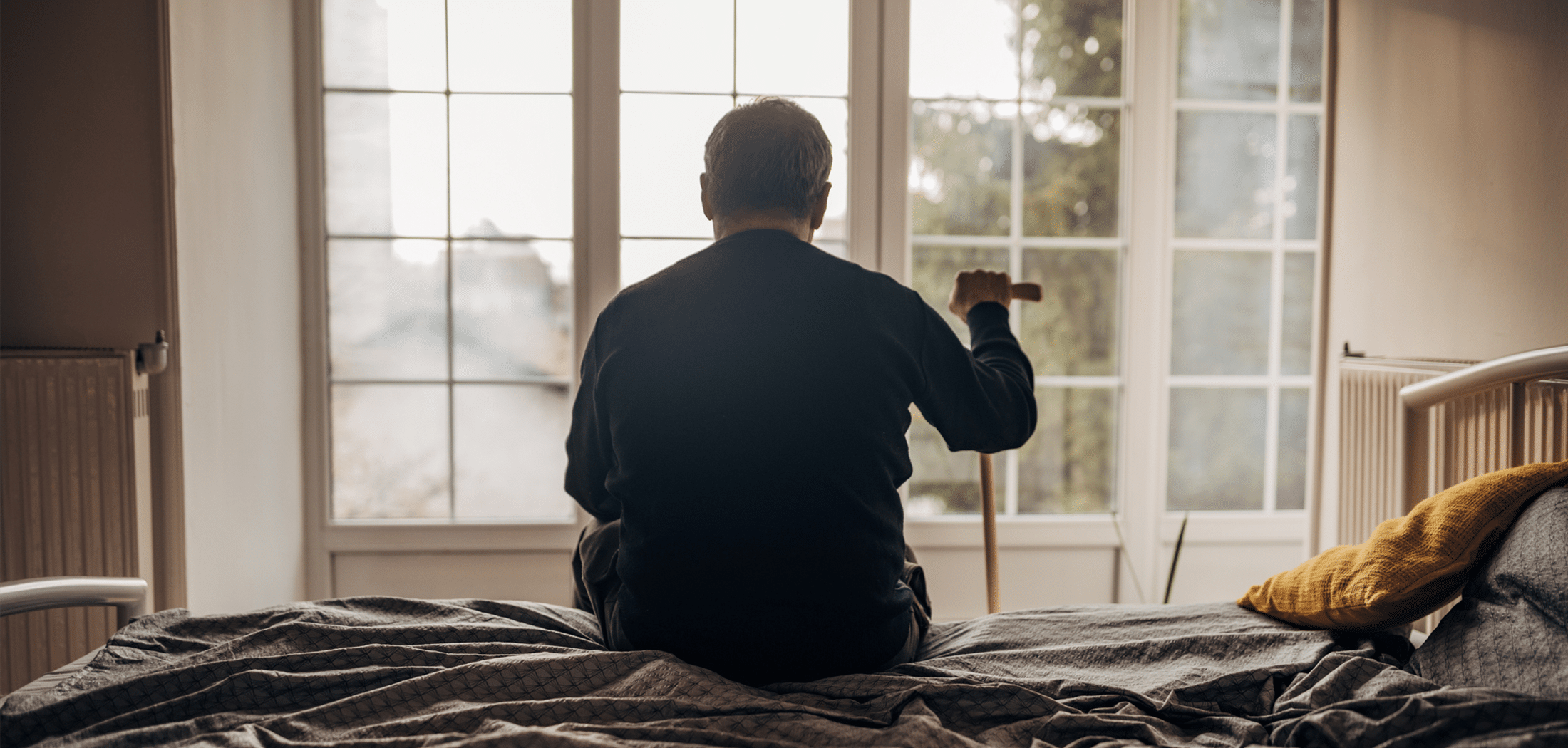
Deciding whether to move a loved one into a long-term care home is never easy – even if the admission is a medical necessity. Although the care the facility provides may ultimately be an improvement over what your loved one experienced living independently, the transition can be stressful for both them and you.
Older people are generally more prone to experiencing anxiety and depression and adjusting to life in a nursing home can have a significant impact on their mental health. A new resident may feel unsettled because they are now living with and being cared for by unfamiliar people. They will have less independence and control over their lives than they did previously. Habitual activities and routines will change. And they may feel lonely and more isolated if they are living away from friends and family.
There are many strategies that can help long-term care home residents improve their mental health as they manage this change in their lives. But there could be other reasons their mental health is deteriorating. About 70 per cent of residents of long-term care homes have a form of dementia, which is known to result in mood and behaviour changes. A resident’s physical ailments may also impact their mental health; chronic pain or other acquired disabilities can put older people at greater risk of depression. And unfortunately, residents of nursing homes may also show signs of declining mental health when they experience abuse or neglect at their assisted-living facility.
In this blog post, I explain the impact of nursing home negligence on a resident’s mental health. I begin by looking at common mental health issues stemming from abuse and neglect. Next, I outline some signs to look for if you think your loved one is being mistreated in their nursing home. Finally, I offer some tips on how to go about stopping this abuse or neglect and why your loved one may be entitled to compensation for the harm they’ve experienced.
What Are Common Types of Mental Health Issues Stemming From Nursing Home Negligence?
Most mental health conditions first present in childhood, adolescence or early adulthood. However, anxiety and/or depression can manifest from physiological changes due to age, medications, diet or situational triggers (such as a traumatic event, abuse, or neglect). Older adults are also more likely to suffer from adverse outcomes associated with mental illness.
Abuse or neglect at the hands of a caregiver can cause significant stress for any vulnerable person. Periods of intense stress or long-term exposure to stress can contribute to experiencing general symptoms of anxiety and/or depression, including:
Depression
- Feeling sad, anxious or numb
- Abnormal irritability or restlessness
- Losing enjoyment of or interest in pleasurable activities
- Fatigue, loss of energy
- Sleep disturbances
- Difficulties concentrating, making decisions or remembering
- Changes in weight or eating habits
- Suicidal thoughts or attempts
Anxiety
- Excessive worrying
- Irrational fears
- Hypervigilance
- Avoiding routine activities and/or social situations
- Physical symptoms, including: a racing heart, shallow breathing, trembling, nausea, sweating.
Some of these symptoms may be more evident depending on the type of abuse or neglect or the presence of the abuser.
For example, if a resident is experiencing emotional/psychological abuse, they may:
- Become emotionally agitated, upset or fearful around a particular person or persons
- Express feelings of shame or guilt
- Become extremely withdrawn, non-communicative or non-responsive
- Display unusual behaviour (sucking, biting or rocking)
How Can You Spot Signs of Abuse or Neglect?
Recognizing a noticeable change in your loved one’s mental health and emotional wellbeing can be a signal that something is wrong. But, as noted above, there are many reasons why an older person could be experiencing anxiety or depression beyond abuse or neglect.
There are several steps you can take to help determine if a nursing home’s negligence is causing your loved one’s mental health to deteriorate:
Look for physical evidence of abuse or neglect
Physical abuse, financial abuse, sexual abuse, and neglect can all leave physical clues. For example, if you see unexplained bruises, cuts, broken bones or lab reports suggesting improper use of prescribed drugs, it could suggest physical abuse. Missing money or items and/or unusual spending on gifts for caregivers can be indicative of potential financial abuse. Genital bruising, bleeding or venereal infections suggest possible sexual abuse. Evidence of neglect can take many forms, including unsanitary conditions, unexpected loss of weight, poor personal hygiene or unaddressed medical conditions such as bed sores.
Talk to your loved one, if possible
If your loved one is able to communicate, they may tell you directly if they are experiencing abuse or neglect. However, a person who is being abused or neglected may often be afraid to reveal details for fear of retribution. They might also accept this mistreatment if they have low self-worth. Asking indirect questions can help determine if your loved one is treated well. You might ask: Do your caregivers come around often when I’m not here? Tell me what your day is like. Do the other residents seem to like it here? Do they complain about anything? Do you have favourite caregivers? Are there any you don’t like?
Install surveillance devices
Although the law restricts sound recordings in a long-term care home resident’s room, video surveillance is permitted without obtaining permission from the facility. Video evidence of abuse or neglect can be critical evidence in a nursing home negligence lawsuit. If a picture says a thousand words, a video recording says a million words. Remember, however, that a resident or their substitute decision-maker must give consent to install a recording device if they lack capacity to provide consent. If another resident is living in the room, that resident or their substitute decision-maker also needs to provide consent if the surveillance device captures images of their living space or areas where they could be expected to come into frame.
What Compensation is Available for Victims of Abuse in Ontario Nursing Homes?
If you suspect abuse or neglect has resulted in physical or psychological harm to your loved one, filing a civil lawsuit is one way to recover damages (including non-pecuniary damages for pain and suffering) on their behalf. In some cases, you may be able to advance a separate and independent claim for negligence (the breach of a duty of care owed to the resident based on certain actions or inaction).
As a personal injury lawyer, I’ve decided to focus my practice on nursing home negligence cases because of my own experience caring for an elderly loved one who suffered from unconscionable harm while in a long-term care facility. Advocating for residents of nursing homes – some of the most vulnerable people in our society – is one way the team at Howie, Sacks and Henry LLP ensures “Hope Starts Here.”
If you suspect or know your loved one has been harmed by abuse, neglect and/or negligence in a long-term care home, contact me at 877-771-7006 for an initial no cost, no obligation consultation. If your case is actionable, together, we can work to obtain justice for your loved one.






